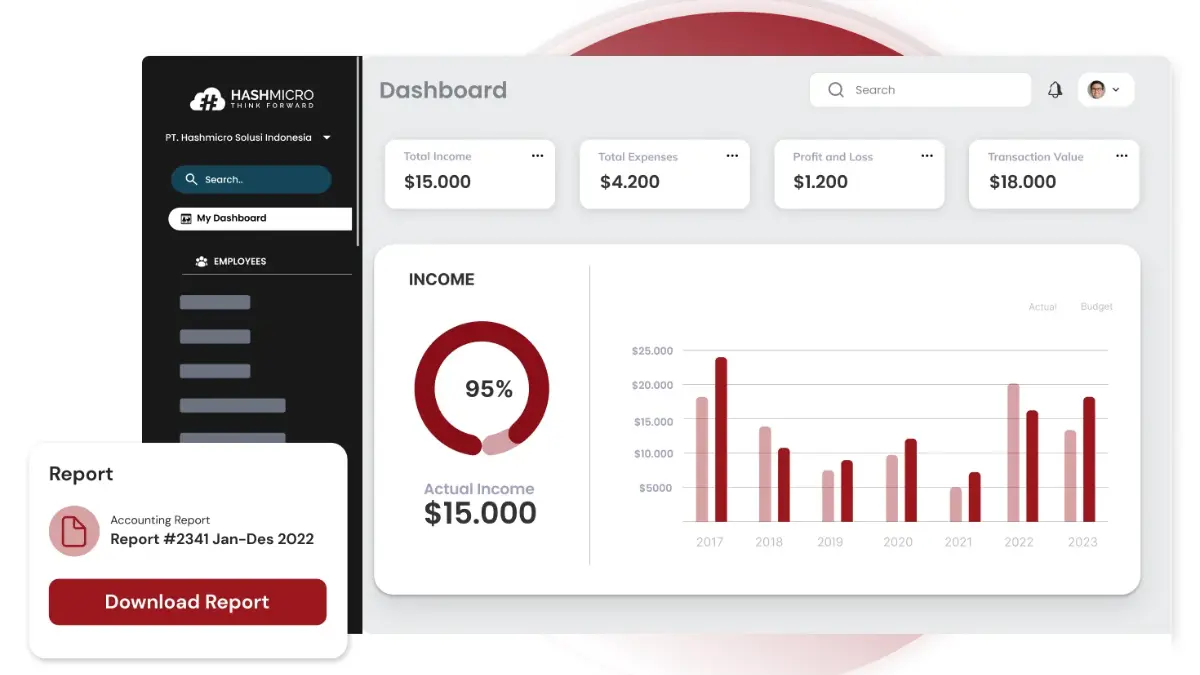Do your financial reports look solid on the surface, while your cash flow paints a different picture? Or has a spike in expenses one month left you questioning your actual performance? Such disparities often arise because the accounting method you use doesn’t align with how value is actually generated.
As required by the Singapore Financial Reporting Standards (SFRS), accrual basis accounting is mandatory for businesses in Singapore, unlike cash basis methods that are no longer permitted. Without it, companies risk misreporting income and expenses, potentially leading to audits, penalties, and poor decision outcomes.
Accrual basis accounting addresses this by recording revenue when earned and expenses when they occur, regardless of when cash changes hands. This arrival at financial reality lets you view your company’s health more clearly and plan more accurately for the future.
Many Singapore businesses have adopted this approach and found improvements in forecasting and operational decisions. Curious to discover how accrual accounting can bring precision to your financial strategy? Let’s explore what the accrual basis in accounting is and why it’s so important.
Key Takeaways
|
What is Accrual Basis Accounting?
The accrual basis of accounting is a method that records income when it is earned and expenses when they are incurred. This approach does not rely on cash movement. Instead, it recognises the business activity itself, offering a more complete financial picture.
Unlike cash accounting, accrual basis reflects economic transactions as they happen, not when money changes hands. It is commonly used by companies that issue invoices, manage payables, or operate with credit terms. This ensures that revenue and expenses are aligned in the right period.
Regulatory standards such as GAAP and IFRS both support this method. These frameworks emphasise the importance of reflecting real-time performance through accurate timing of income and cost recognition even if no cash is involved yet.
If you’ve ever asked what is accrual basis of accounting is, it’s essentially about capturing the true financial activity behind every transaction. This method helps companies match effort and earnings more accurately across their operations.
How Does Accrual Basis Accounting Work?

Accrual basis accounting works by recording revenue when it is earned and expenses when they are incurred. This means that transactions are recognised when goods or services are delivered, not when the payment is made or received.
This method helps align financial records with actual business activity. It also captures upcoming receivables and payables, offering a clearer view of a company’s financial health, both now and in the future.
Key elements of how accrual basis accounting works
- Record income when earned
Revenue is recorded at the point when a service is provided or a product is delivered, even if the customer hasn’t paid yet. - Record expenses when incurred
Expenses are recognised when a cost obligation arises, not when payment is made. This includes unpaid vendor bills, payroll, or rent. - Apply the matching principle
Revenue and its related expenses must be recorded in the same accounting period to show accurate profitability.
Companies dealing with credit sales, recurring expenses, or inventory typically benefit most from this method. The accrual basis of accounting ensures reports reflect economic activity, not just the movement of cash.
Types of Accrual Basis
The accrual basis of accounting is guided by core principles that ensure business activities are recorded accurately. These principles help companies in Singapore better reflect their true financial performance, regardless of payment timing.
1. The revenue recognition principle
Revenue is recorded once a service has been delivered or goods provided, even if payment has not yet been received. This offers a more consistent view of earnings and helps meet local financial reporting standards.
IT consultancy that signs a $150,000 contract with payment linked to project phases. As each milestone is completed, revenue is recognised, even if clients delay payment until project handover.
2. The expense recognition principle
Expenses are recorded when a business becomes responsible for paying, not when the money is actually transferred. This principle ensures that financial statements reflect real obligations as they occur.
A construction company might complete work in March but process subcontractor payments in April. Even so, the expense is recorded in March to match the timing of the completed work and ensure accurate cost tracking.
3. The matching principle
This principle requires that expenses be recorded in the same period as the revenue they help generate. It ensures that profit figures accurately reflect business performance without being distorted by delayed payments.
For example, if a logistics firm incurs fuel and labour costs in November to deliver shipments billed that same month, those costs should be recorded in November, even if the bills are paid in December.
Accrual Basis Accounting vs Cash Accounting

Choosing between accrual and cash accounting is more than just a technical decision. It influences how revenue, expenses, and profit are recorded and understood. For companies in Singapore, especially those dealing with inventory or credit sales, this choice can shape financial reporting, tax obligations, and long-term planning.
Key differences between accrual basis and cash accounting
| Aspect | Accrual Basis | Cash |
| Timing of Revenue | Recognised when earned, even if cash is not yet received | Recognised only when cash is received |
| Timing of Expenses | Recorded when incurred, even before payment is made | Recorded only when payment is made |
| Financial Accuracy | More accurate and reflective of business performance | May be misleading, especially with delayed income or payments |
| Suitability | Preferred by larger or growing businesses with complex operations | Suitable for small businesses with simple transactions |
| Tax Implication | Taxes apply to earned revenue, even if unpaid | Taxes apply only to received cash income |
| Complexity | More detailed, requires accounting knowledge | Simpler to maintain, easier for non-accountants |
While both methods have their place, the accrual basis of accounting is more aligned with how most companies operate in Singapore. It shows when revenue is earned and when costs are truly incurred, giving stakeholders a clearer view of financial performance.
In contrast, cash accounting reflects only what has been received or paid. Although easier to implement, it can misrepresent actual profitability, especially if revenue is delayed or expenses are deferred past the reporting period.
For example, a digital agency that issues client invoices in March but receives payment in April would still record the income in March using accrual accounting. Meanwhile, a sole proprietor doing freelance design work might use cash accounting, only recording revenue when payment lands in the bank.
Ultimately, the choice depends on the business’s size, transaction complexity, and reporting requirements. However, for companies seeking accurate reporting, better forecasting, and compliance with local standards, the accrual basis often proves more reliable.
Benefits of Accrual Basis
The accrual basis of accounting offers meaningful advantages for businesses that operate with complex transactions, recurring billing, or extended project timelines. Although it may be more challenging to implement, its ability to reflect real-time business performance makes it a valuable approach.
1. Provides more consistent financial reporting
By recording revenue and expenses when they occur, the accrual basis of accounting produces steady and reliable financial data across reporting periods. This consistency supports structured accounting workflows and helps business owners, accountants, and stakeholders make decisions based on trends rather than cash fluctuations.
2. Enables more accurate profit analysis
The accrual basis allows companies to align revenue with the expenses used to generate it. As a result, profit margins become more reflective of actual business activity. This is especially useful for companies managing multiple service agreements or delayed billing cycles.
3. Supports compliance and audits
Businesses that plan to undergo audits or apply for funding often require accrual-based reports. This method meets the standards of both local and international financial reporting, which simplifies audit preparation and improves transparency for lenders or investors.
4. Captures non-cash transactions
The accrual method recognises activities like unpaid vendor bills or revenue from credit sales. This means financial reports show not only what has been paid or received, but also what is expected. It provides a full picture of financial obligations and potential income.
5. Suits complex operations and forecasting
Companies with operations such as logistics, engineering, or professional services often benefit from accrual accounting. It provides a clearer view of upcoming cash needs, long-term profitability, and financial health, which helps with accurate forecasting and planning.
To explore the cost of implementing accounting software, review solutions built for streamlining accounting tasks. Eligible businesses in Singapore may receive up to 70% cost support through the CTC grant.
How HashMicro Helps Accounts for Accrual Basis Accounting

Accurately managing accrual basis accounting often requires integrating sales, purchases, and finance processes into a unified system. When these elements are disconnected, manual tracking becomes inefficient and increases the risk of inconsistent reporting.
HashMicro’s accounting software simplifies the adoption of the accrual basis of accounting by seamlessly connecting accrual data with cash-based transactions. As a result, finance teams gain faster access to relevant financial insights while reducing data entry errors and improving accuracy.
The system is updated in line with the latest regulatory developments, helping companies remain compliant while modernising their accounting practices. It supports detailed accrual tracking across departments and periods without needing separate systems.
With Hashy, the built-in AI assistant, you can automate repetitive tasks such as revenue recognition, accrual recording, and financial forecasting. This improves reporting consistency and allows your team to focus on strategic planning.
Here are key features that help businesses apply and manage accrual basis accounting with ease:
- Profit & Loss vs Budget & Forecast: Compare actual performance against forecasted figures to evaluate how closely accrual plans match outcomes.
- Forecast Budget: Plan future revenue and expense accruals more accurately to support long-term budgeting decisions.
- Financial Statement with Budget Comparison: Review actual vs planned accruals for better tracking of business performance.
- Budget & Realization: Monitor variances between projected accruals and real outcomes to refine financial planning.
- Complete FS with Period Comparison: View period-to-period comparisons to analyse how accruals evolve over time.
- Multi-Level Analytical Reporting: Break down accrual data by project, branch, or department for more targeted insights.
- Landed Costs Management: Allocate indirect costs accurately to inventory or assets, improving accrual tracking precision.
- Treasury & Forecast Cash Management: Align projected accruals with cash flow plans to maintain financial stability.
Conclusion
Understanding the accrual basis of accounting is essential for businesses to make informed financial decisions. Recognising revenues and expenses when earned or incurred provides a clearer view of performance, aligns with long-term projects, complex transactions, and regulatory compliance.
HashMicro’s accounting system simplifies this approach through smart automation and real-time integration. With customisable features and local compliance built in, finance teams can improve efficiency while reducing manual errors across every department.
If you’re ready to experience smarter, more accurate financial management, book a free demo with HashMicro today. Discover how the system can help you streamline accrual accounting and stay ahead of regulatory expectations with ease.
Warning: Undefined array key "med" in /home/hashmicr/public_html/blog/wp-content/plugins/insert-headers-and-footers/includes/class-wpcode-snippet-execute.php(419) : eval()'d code on line 281

FAQ about Accrual Basis
-
What is under accrual basis accounting?
It refers to incomplete recording of income or expenses within a period, causing the financial statements to understate profits or liabilities.
-
What are the disadvantages of accrual basis?
It’s more complex to manage and may require stronger accounting systems or automation to track non-cash transactions accurately.
-
Is tax reporting based on cash or accrual in Singapore?
Financial statements use accrual basis, but tax filings can differ based on IRAS guidelines and the company’s revenue threshold.
-
Is accrual accounting suitable for small businesses?
Yes, if they handle credit sales or long-term projects. For simpler operations, cash accounting may be easier to maintain.
-
Is accrual a liability or asset?
Both. Accrued revenue is an asset, while accrued expenses are recorded as liabilities on the balance sheet.

































